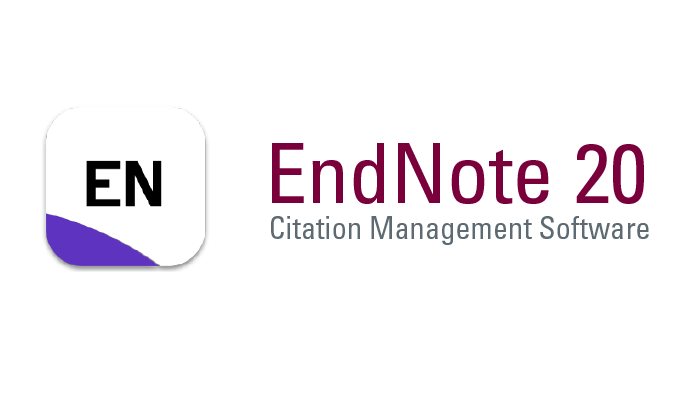ANALISIS INVOICE FINANCING PADA FINTECH SYARIAH (PT. Alami Fintek Sharia)
DOI:
https://doi.org/10.47887/amd.v2i1.17Keywords:
alami, Fintech Sharia, Invoice Financing, Qard, Wakalah bil UjrahAbstract
Alami one of the fintech organizer platforms is registered and licensed at the OJK on May 27, 2020 under the company name PT Alami Fintek Syariah which has a Sharia based business type. Invoice financing in Alami is financing in the form of bill management services based on invoice evidence, either with or without a bailout (qard) given to business actors who have invoice to third parties (payor). The performance platform is inseparable from the company’s strategy that optimizes sector sector collaboration, industry and business projections, and retail optimization. The success of the Alami platform’s performance proves that Alami has won the trust of customers both from funders and also from recipients with a total of 272 existing lists of financing. Product of Alami according to the Fatwa DSN-MUI No. 117/ DSN_MUI/ II/ 2018, because the legal subject has met the requirements, namely there is an organizer (Alami), a recipient of financing (in this case 272 total financing lists) and providers of financing using al qordh and wakalah bil ujrah contracts who have entered into the DSN_MUI fatwa.
References
Alwi, Ahmad Basori. (2018). Pembiayaan Berbasis Teknologi Informasi (Fintech) yang Berdasarkan Syariah. Al-Qānūn, Jurnal Pemikiran dan Pembaharuan Hukum Islam, (21)2.
Arner. 2016. Opportunities and Challenges, Fintech and Regtech.
Ayub, Muhammad. (2009). Understanding Islamic Finance. Jakarta: Gramedia Pustaka Utama.
Baihaqi, Jadzil. (2018). Financial Technology Peer-To-Peer Lending Berbasis Syariah di Indonesia. Tawazun, (1)2.
Chuen, David Lee Kuo & Low, Linda. (2018). Inclusive Fintech (Blockhain, Cryptocurrency and ICO). New York: Worid Scientific.
Darmawansyah & Aguspriyani. (2019). Implementation Of Fintech Syariah In PT. Investree Reviewed Based On Fatwa DSN-MUI No: 117 / DSN-MUI / II / 2018 About Information Technology-Based Financing Services Based On Sharia Principles. Ad-Deenar, (3)2 .
Fatwa DSN MUI No: 117/DSN-MUI/II/2018
Hiyanti, Hida. Nugroho, Lucky. Sukmadilaga, Citra & Fitrijanti, Tettet. (2019). Peluang dan Tantangan Fintech (Financial Technologi) Syariah di Indonesia. Jurnal Ilmiah Ekonomi Islam, (5)3. http://dx.doi.org/10.29040/jiei.v5i3.578.
https://keuangan.kontan.co.id/
https://p2p.alamisharia.co.id/id/pembiayaan
Lestari, Dikta Ayu. (2019). Tinjauan Kompilasi Hukum Ekonomi Syariah Terhadap Pembiayaan Peer To Peer Lending Pada Lembaga Kapitalboost (Thesis). Universitas Islam Negeri Maulana Malik Ibrahim, Malang, Indonesia.
Maulida, Sri. Hasan, Ahmadi. & Umar, Masyitah. (2020). Implementasi Akad Pembiayaan Qard dan Wakalah bil Ujrah pada Platform Fintech Lending Syariah ditinjau Berdasarkan Peraturan Otoritas Jasa Keuangan (OJK) dan Fatwa DSN-MUI. Al-Tijary Jurnal Ekonomi dan Bisnis Islam, (5)2.
Nurcahya, Yulida Army & Dewi, Rizky Puspita. (2019). Analisis Pengaruh Perkembangan Fintech dan E-Commerce terhadap Perekonomian Masyarakat. Universitas Tidar: Magelang.
Ojk.go.id
Parizi, Ahmat. (2019). Perkembangan Fintech Syariah. Kseiprogres.com
Pratama, Ahmad Aziz Putra. (2020). The Factors that Influence the Community Preference Using Financial Technology Services in Sharia Financial Institutions. Falah: Jurnal Ekonomi Syariah, (5)1.
Rusdiana, A. & Saptaji, Aji. (2018). Auditing Syariah, Akuntabilitas Sistem Pemeriksaan laporan Keuangan. Bandung: Pustaka Setia.
Wijayanti, Dwi Marlina & Riza, Alex Fahrur. (2017). Sharia Fintech: Positive Innovation in Consumer Perspective. KPPU, Proceeding International Seminar on Competition Policy and Law. Nusa Dua, Bali.
Wiyono, Teguh. (2020). Mekanisme dan Layanan Peer-To-Peer Lending Syariah Perspektif Ekonomi Islam (Studi Analisis pada 13 Fintech Syariah yang Terdaftar di Otoritas Jasa Keuangan Per 19 Februari 2020) (Theses). IAIN Ponorogo, Ponorogo, Indonesia.
Yarli, Dodi. (2018). Analisis Akad Tijarah pada Transaksi Fintech Syariah dengan Pendekatan Maqhasid. Jurnal Pemikiran dan Hukum Islam Yudisia, (9)2.
Downloads
Published
How to Cite
Issue
Section
License
Copyright (c) 2021 Fitri Salekhah

This work is licensed under a Creative Commons Attribution-ShareAlike 4.0 International License.
Authors retain copyright and grant the journal right of first publication and this work is licensed under a Creative Commons Attribution-ShareAlike 4.0 that allows others to share the work with an acknowledgement of the works authorship and initial publication in this journal.
All articles in this journal may be disseminated by listing valid sources and the title of the article should not be omitted. The content of the article is liable to the author.
Authors are able to enter into separate, additional contractual arrangements for the non-exclusive distribution of the journal's published version of the work (e.g., post it to an institutional repository or publish it in a book), with an acknowledgment of its initial publication in this journal.
Authors are permitted and encouraged to post their work online (e.g., in institutional repositories or on their website) prior to and during the submission process, as it can lead to productive exchanges, as well as earlier and greater citation of published work.
In the dissemination of articles by the author must declare the Al-Madaris Jurnal Pendidikan dan Studi Keislaman as the first party to publish the article.














